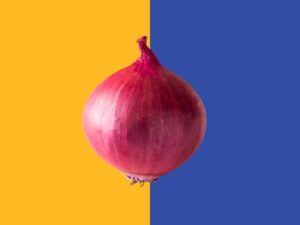Yuca and potatoes are two of the most widely consumed starchy vegetables around the world. Both are popular ingredients in various cuisines and can be prepared in a multitude of ways. However, they have unique nutritional profiles and health benefits that make them different from each other. In this article, we will explore the nutritional differences and health benefits of yuca and potatoes and how they compare with each other.
What is Yuca?
Yuca (also known as cassava) is a starchy root vegetable that is native to South America but is now widely cultivated in tropical regions around the world. It has a long, tapered shape with tough brown skin and white flesh. Yuca is a rich source of carbohydrates, fiber, and several essential vitamins and minerals.
Nutritional Profile of Yuca
A 100-gram serving of yuca provides the following nutrients:
- Calories: 160
- Carbohydrates: 38 grams
- Protein: 1 gram
- Fat: 0.3 grams
- Fiber: 3.7 grams
- Vitamin C: 34% of the Daily Value (DV)
- Thiamine (Vitamin B1): 20% of the DV
- Folate (Vitamin B9): 17% of the DV
- Potassium: 558 mg (15% of the DV)
- Magnesium: 21% of the DV
Health Benefits of Yuca
- Supports Digestive Health: Yuca is a good source of fiber, which is essential for maintaining a healthy digestive system. Fiber helps regulate bowel movements, prevent constipation, and reduce the risk of colon cancer.
- Boosts Immune System: Yuca is high in Vitamin C, which is a powerful antioxidant that helps protect cells from damage caused by free radicals. Vitamin C also supports immune system function by stimulating the production of white blood cells.
- Promotes Cardiovascular Health: The potassium in yuca helps regulate blood pressure and prevent hypertension. It also reduces the risk of heart disease by decreasing the formation of blood clots and improving blood flow.
- Anti-Inflammatory Properties: Yuca contains compounds that have anti-inflammatory properties, which may help reduce inflammation in the body and relieve symptoms of inflammatory conditions like arthritis.
What is Potato?
Potato is a root vegetable that is native to South America and is now widely cultivated around the world. It has a round shape with a brown or red skin and white, yellow, or purple flesh. Potatoes are a good source of carbohydrates, fiber, and several essential vitamins and minerals.
Nutritional Profile of Potato
A 100-gram serving of potato provides the following nutrients:
- Calories: 87
- Carbohydrates: 20 grams
- Protein: 1.8 grams
- Fat: 0.1 grams
- Fiber: 1.8 grams
- Vitamin C: 17% of the DV
- Vitamin B6: 10% of the DV
- Potassium: 379 mg (10% of the DV)
- Iron: 6% of the DV
Health Benefits of Potato
- Good for Digestive Health: Potatoes are rich in resistant starch, which is a type of fiber that resists digestion in the small intestine and reaches the colon intact. Resistant starch helps promote the growth of beneficial gut bacteria and improves overall gut health.
- Immune System Support: Potatoes are a good source of Vitamin C, which helps boost the immune system by stimulating the production of white blood cells.
- Cardiovascular Health: Potatoes contain compounds that help lower blood pressure and reduce the risk of heart disease. The potassium in potatoes helps regulate blood pressure and reduce the risk of hypertension.
- Anti-Inflammatory Properties: Potatoes contain compounds that have anti-inflammatory properties, which can help reduce inflammation in the body and alleviate symptoms of inflammatory conditions like arthritis.
Comparison of Nutritional Values
Macronutrients
Both yuca and potato are good sources of carbohydrates, which provide energy to the body. However, yuca contains more carbohydrates than potato, with 38 grams of carbohydrates per 100 grams compared to potato’s 20 grams per 100 grams. In terms of protein, potato has a slightly higher protein content than yuca, with 1.8 grams per 100 grams compared to yuca’s 1 gram per 100 grams. Both yuca and potato are low in fat, with less than 1 gram of fat per 100 grams.
Micronutrients
Both yuca and potato are good sources of vitamins and minerals, but they have different nutrient profiles. Yuca is a good source of Vitamin C, Thiamine (Vitamin B1), Folate (Vitamin B9), Potassium, and Magnesium. On the other hand, potato is a good source of Vitamin C, Vitamin B6, Potassium, and Iron. Both vegetables are low in sodium.
Fiber Content
Yuca has a higher fiber content than potato, with 3.7 grams of fiber per 100 grams compared to potato’s 1.8 grams per 100 grams. Both types of fiber are important for digestive health and can help regulate bowel movements, prevent constipation, and promote the growth of beneficial gut bacteria.
Glycemic Index
The glycemic index (GI) measures how quickly a food raises blood sugar levels. Yuca has a high GI, with a value of 72, which means it can cause a rapid rise in blood sugar levels. Potato has a moderate GI, with a value of 56. However, when potatoes are cooked and then cooled, they form resistant starch, which has a lower GI and provides health benefits for the gut.
Health Benefits Comparison
Digestive Health
Both yuca and potato are good sources of fiber, which is essential for maintaining a healthy digestive system. Yuca’s higher fiber content may provide greater benefits for digestive health, including regulating bowel movements and reducing the risk of colon cancer. However, the resistant starch in potatoes also provides benefits for gut health by promoting the growth of beneficial gut bacteria.
Immune System Support
Both yuca and potato are good sources of Vitamin C, which helps boost the immune system by stimulating the production of white blood cells. Yuca has a higher Vitamin C content than potato, which may provide greater immune system benefits.
Cardiovascular Health
Both yuca and potato contain compounds that help regulate blood pressure and reduce the risk of heart disease. Yuca’s higher potassium content may provide greater benefits for cardiovascular health, including reducing the formation of blood clots and improving blood flow.
Anti-Inflammatory Properties
Both yuca and potato contain compounds that have anti-inflammatory properties, which can help reduce inflammation in the body and alleviate symptoms of inflammatory conditions like arthritis.
Culinary Uses of Yuca and Potato
Yuca and potato are versatile ingredients that can be prepared in a variety of ways. Yuca can be boiled, steamed, fried, or roasted and is often used in stews, soups, and casseroles. It can also be ground into flour and used to make bread, cakes, and other baked goods. Potato can be boiled, baked, roasted, or mashed and is used in a wide range of dishes, including mashed potatoes, french fries, potato salad, and potato chips. Both vegetables can also be used as a base for gluten-free alternatives to pasta, such as yuca gnocchi or potato dumplings.
Conclusion
In conclusion, yuca and potato are both nutritious and versatile vegetables that offer a range of health benefits. While yuca is higher in carbohydrates and fiber, potato has a slightly higher protein content and is a good source of Vitamin B6 and Iron. Both vegetables contain compounds that help regulate blood pressure, reduce inflammation, and support immune and cardiovascular health.
When it comes to culinary uses, both yuca and potato offer a range of options for cooking, from boiling and frying to baking and roasting. Whether you prefer the earthy flavor and dense texture of yuca or the fluffy and versatile nature of potatoes, both vegetables are great options for adding variety and nutrition to your diet.
Ultimately, the choice between yuca and potato comes down to personal preference and dietary needs. By incorporating both vegetables into your meals, you can enjoy the unique flavors and benefits that each has to offer.





